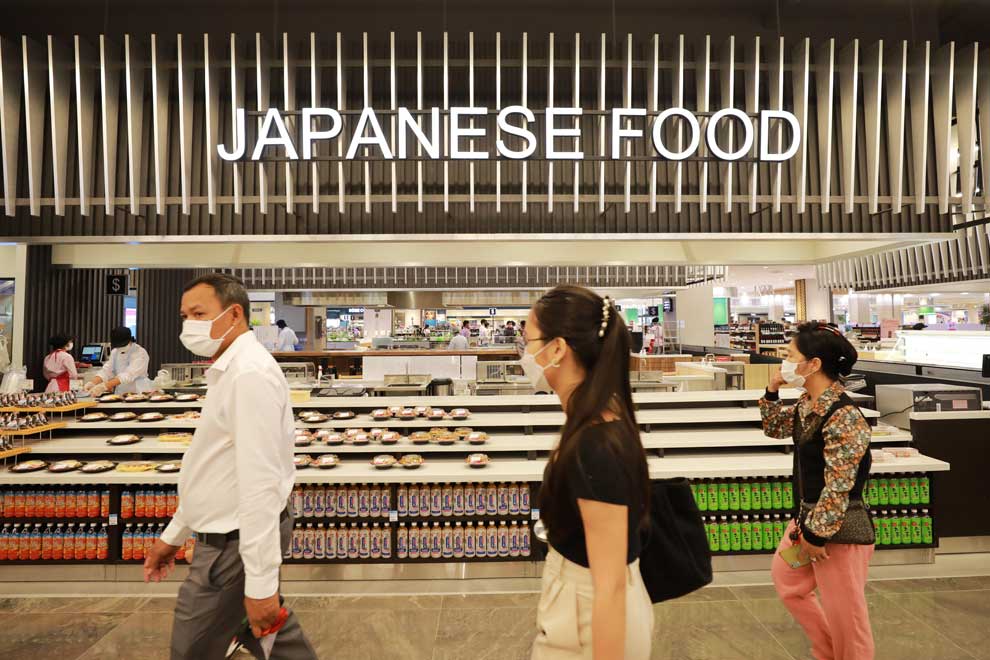
Cambodian customers walk passed a Japanese food stall at a AEON Mall in Phnom Penh’s Meanchey district in 2022. Hong Menea
A senior Cambodian official has confirmed the country will not impose a ban on food imports from Japan, in spite of concerns about the release of treated nuclear waste from the Fukushima power plant.
Pen Sovicheat, spokesperson for the Ministry of Commerce, stated on September 3 that the decision not to halt seafood imports was based on Japan’s adherence to technical specifications.
Although the Kingdom imports seafood from the country, it does not label specific origins or regions.
He added that there is no conclusive scientific evidence linking marine products or treated wastewater from Fukushima to marine ecosystem damage or threats to human health.
“That’s why we found it difficult to implement a block on imports. We are still permitting shipments from Japan and will not enact any restrictions,” Sovicheat said.
He noted that seafood available in the Cambodian market is also imported from various other countries including Vietnam and China.
He continued by mentioning the country’s importation of various fresh and frozen seafood types, such as Pacific and Atlantic salmon, swordfish, tuna, shark fins, lobsters and crabs.
Japanese media has reported that both the government and the International Atomic Energy Agency (IAEA) have previously asserted that the contaminated water underwent thorough inspection before being diverted into the ocean over the course of several years.
The water’s concentration of tritium, a radioactive by-product, was diluted to less than 1,500 becquerels per litre, reducing it by 100 to 1. This concentration is about one-seventh of the maximum allowable level set by the World Health Organization (WHO).
Following the discharge of treated water from the complex into the Pacific, certain countries, China in particular, enforced bans on seafood imports from Japan and the US. There were also protests by Japanese citizens themselves.
Nou Sovann, executive director of River Ocean Cleanup, expressed confidence in the decisions made by the Japanese government and the IAEA. He cited their extensive scientific studies spanning a decade, aimed at addressing concerns related to possibly dangerous substances from the facility.
“The Advanced Limiter-divertor Plasma-facing Systems (ALPS) conducted inspections and revealed results indicating the absence of radioactive material in the waste. This is why I’m not concerned; the Japanese government has been more transparent and concerned than any other nation. With accurate studies as a basis, there’s no cause for alarm,” he said.











